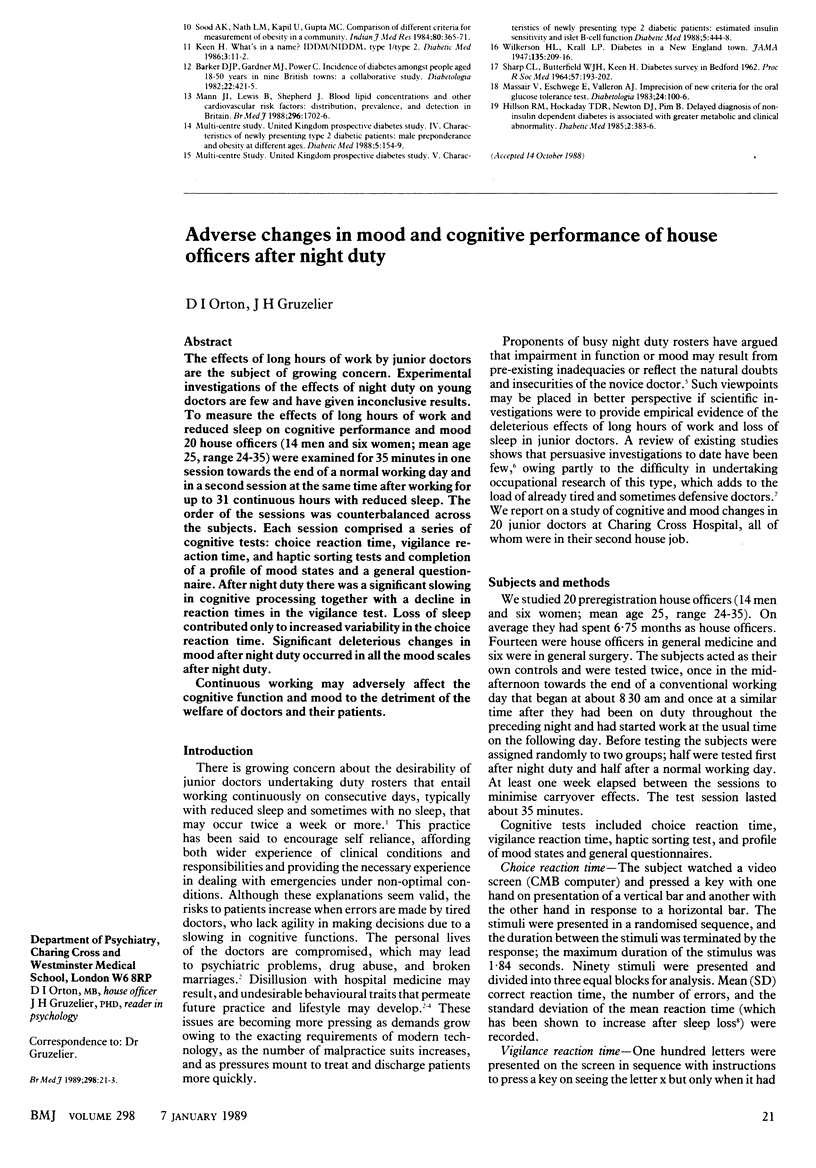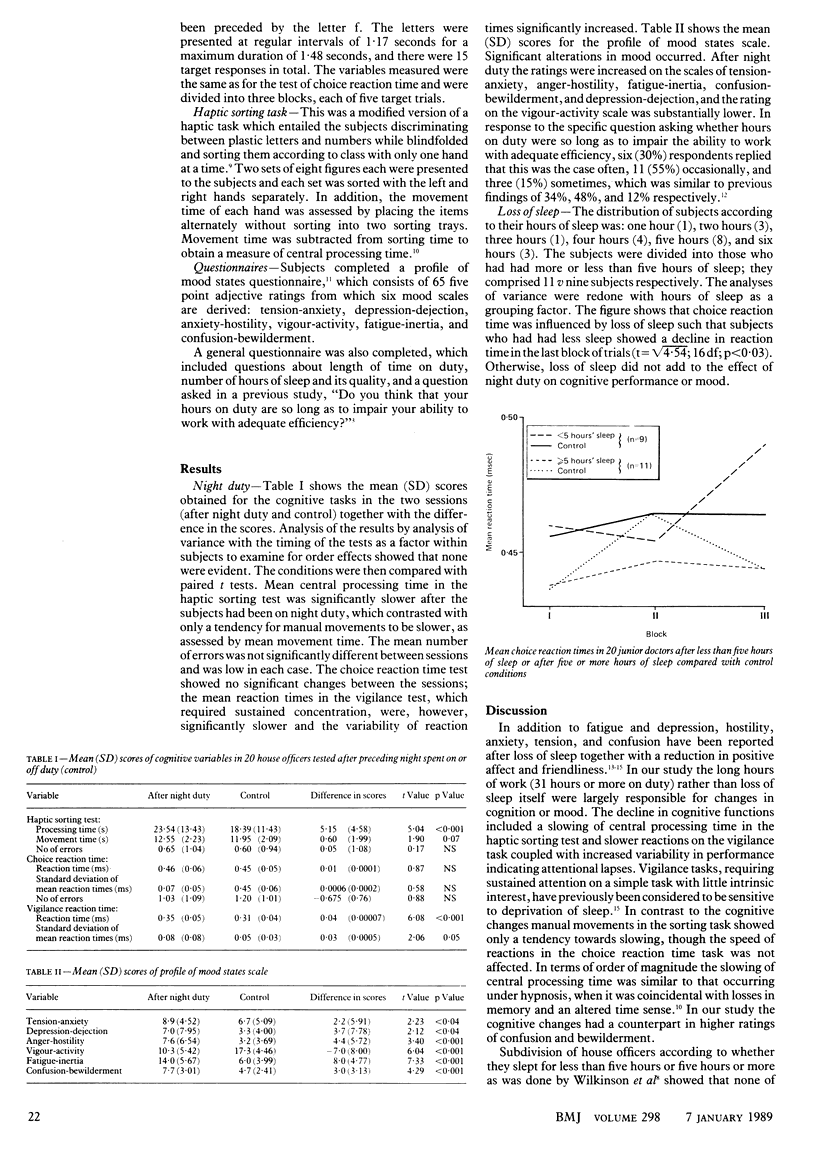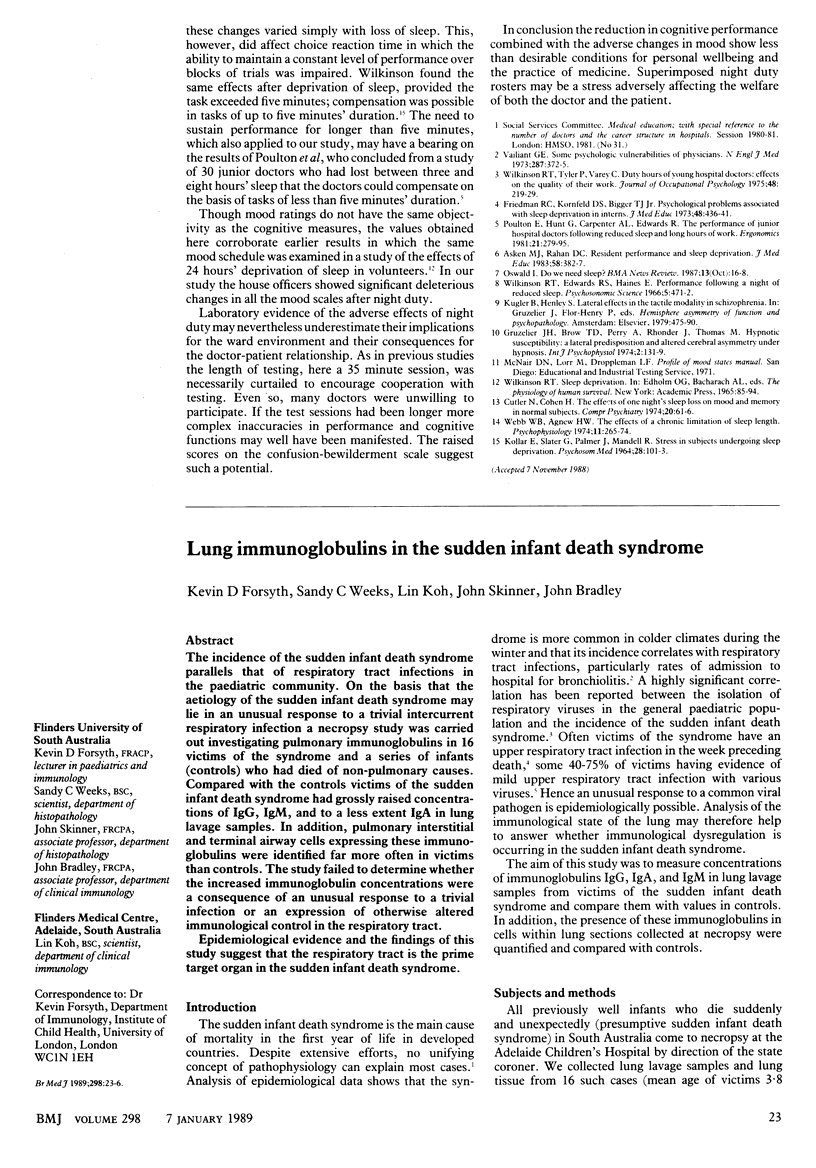Abstract
The effects of long hours of work by junior doctors are the subject of growing concern. Experimental investigations of the effects of night duty on young doctors are few and have given inconclusive results. To measure the effects of long hours of work and reduced sleep on cognitive performance and mood 20 house officers (14 men and six women; mean age 25, range 24-35) were examined for 35 minutes in one session towards the end of a normal working day and in a second session at the same time after working for up to 31 continuous hours with reduced sleep. The order of the sessions was counterbalanced across the subjects. Each session comprised a series of cognitive tests: choice reaction time, vigilance reaction time, and haptic sorting tests and completion of a profile of mood states and a general questionnaire. After night duty there was a significant slowing in cognitive processing together with a decline in reaction times in the vigilance test. Loss of sleep contributed only to increased variability in the choice reaction time. Significant deleterious changes in mood after night duty occurred in all the mood scales after night duty. Continuous working may adversely affect the cognitive function and mood to the detriment of the welfare of doctors and their patients.
Full text
PDF


Selected References
These references are in PubMed. This may not be the complete list of references from this article.
- Asken M. J., Raham D. C. Resident performance and sleep deprivation: a review. J Med Educ. 1983 May;58(5):382–388. doi: 10.1097/00001888-198305000-00003. [DOI] [PubMed] [Google Scholar]
- Cutler N. R., Cohen H. B. The effect of one night's sleep loss on mood and memory in normal subjects. Compr Psychiatry. 1979 Jan-Feb;20(1):61–66. doi: 10.1016/0010-440x(79)90060-9. [DOI] [PubMed] [Google Scholar]
- Friedman R. C., Kornfeld D. S., Bigger T. J. Psychological problems associated with sleep deprivation in interns. J Med Educ. 1973 May;48(5):436–441. doi: 10.1097/00001888-197305000-00004. [DOI] [PubMed] [Google Scholar]
- Gruzelier J., Brow T., Perry A., Rhonder J., Thomas M. Hypnotic susceptibility: a lateral predisposition and altered cerebral asymmetry under hypnosis. Int J Psychophysiol. 1984 Nov;2(2):131–139. doi: 10.1016/0167-8760(84)90006-0. [DOI] [PubMed] [Google Scholar]
- Kollar E. J., Slater G. R., Palmer J. O., Doctor R. F., Mandell A. J. Stress in subjects undergoing sleep deprivation. Psychosom Med. 1966 Mar-Apr;28(2):101–113. doi: 10.1097/00006842-196603000-00002. [DOI] [PubMed] [Google Scholar]
- Poulton E. C., Hunt G. M., Carpenter A., Edwards R. S. The performance of junior hospital doctors following reduced sleep and long hours of work. Ergonomics. 1978 Apr;21(4):279–295. doi: 10.1080/00140137808931725. [DOI] [PubMed] [Google Scholar]
- Webb W. B., Agnew H. W., Jr The effects of a chronic limitation of sleep length. Psychophysiology. 1974 May;11(3):265–274. doi: 10.1111/j.1469-8986.1974.tb00543.x. [DOI] [PubMed] [Google Scholar]


